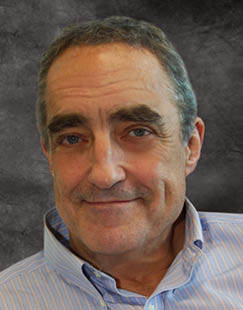28 novembre 2024: Pr Andrew R. Marks
12H30
CMU - AUDITOIRE MÜLLER (A250)
suivi d'un apéritif
Hôte: Pr Nicolas Demaurex
Département de physiologie cellulaire et métabolisme, Faculté de médecine UNIGE
Pr Andrew R. Marks
Professor and Chair
Department of Physiology and Cellular Biophysics,
Columbia University, New York

«Mechanisms and therapeutics for heart and muscle disease revealed by solving high-resolution structures of the ryanodine receptor»
Calcium (Ca2+) is a fundamental second messenger in all cell types and is required for numerous critical cellular functions including cardiac and skeletal muscle contraction. Intracellular free [Ca2+] is regulated primarily by ion channels, pumps (ATPases), exchangers and Ca2+ binding proteins. Defective regulation of [Ca2+] is found in a diverse spectrum of pathological states and human disorders affecting all the major organs. In the heart we and others have reported abnormalities in cytosolic [Ca2+]cyt and mitochondrial [Ca2+]mito regulation in heart failure (HF) and atrial fibrillation (AF), the two most common forms of heart disease and leading contributors to mortality and morbidity.
This lecture is focused on mechanisms that regulate the major SR Ca2+ release channels in heart, muscle and brain, the ryanodine receptor types 1 & 2 (RyR1, RyR2), how the channel becomes dysfunctional in HF and AF, contributes to cognitive dysfunction, and is a potential therapeutic target. Inherited RyR mutations, and/or stress-induced phosphorylation and oxidation, destabilize the closed state of the channel resulting in a pathological SR Ca2+ leak that both triggers arrhythmias and impairs contractility, and impairs synaptic signaling in the brain. Recent high-resolution cryo-electron microscopy (cryo-EM) RyR structures have clarified the architecture of multiple functional states, ligand-binding sites and gating mechanisms, and informed as to mechanisms that go awry in HF and AF, and cognitive dysfunction. Based on new understandings of SR Ca2+ leak as a common Ca2+-dependent pathological mechanism in HF and AF, a new class of drugs developed in our laboratory called Rycals, that stabilize RyR channels and prevent SR Ca2+ leak, are undergoing clinical trials.
Biography
Andrew R. Marks, MD is Chair and Professor of the Physiology and Cellular Biophysics Department at Columbia University. He is a member of the National Academy of Sciences (2005), National Academy of Medicine (2004), and American Academy of Arts and Sciences (2005). From 2002-2007 Dr. Marks was Editor-in-Chief of the Journal of Clinical Investigation. Dr. Marks’ research has published over 200 articles in which he has contributed new understandings of fundamental mechanisms that control muscle contraction, heart function, lymphocyte activation, and cognitive function. He has discovered novel causes of human diseases linked to leaky ryanodine receptor (RyR)/calcium release channels including heart failure, cardiac arrhythmias, muscular dystrophy, diabetes, and neurodegenerative disorders. He has developed novel treatments for coronary artery disease (in 2003 the FDA approved the first drug eluting stent), and a new class of drugs called Rycal® that fix RyR channel leak. A Rycal® is in clinic trials for myopathies and cardiac arrhythmias. Dr. Marks is a member of the Columbia University Senate Executive Committee.
1 oct. 2024